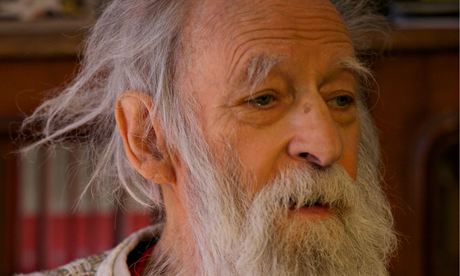
My husband, Alan Sutcliffe, who has died aged 83, was a pioneer of computer arts and co-founded the Computer Arts Society in 1969. As well as being an accomplished software engineer, he spent a great deal of his life creating art: electronic music, sound, graphics, computer-generated poetry and audience-participation pieces.
Alan was born in Todmorden, West Yorkshire, the son of a mill engineer and a dressmaker. Although he failed the 11-plus, his parents were able to pay a modest fee to allow him to attend the local grammar school. In 1949, he won a scholarship to study mathematics at Bristol University. He entered national service with the West Yorkshire Regiment in 1951, which took him to Egypt and Malaya. He left the army in 1953.
Alan then applied his mathematics training to the design of packaging containers. It was during this time that he started working with computers. He was hired by English Electric in 1963, where he helped to develop the operating system for the KDF9 computer. From 1966 he was a research manager at International Computers and Tabulators, which later merged into International Computers Limited (ICL), where he remained until 1972.
At the 1968 congress of the International Federation for Information Processing, Alan proposed the formation of the Computer Arts Society. He founded the society together with George Mallen and John Lansdown. The society's bulletin, PAGE, was at first edited by the artist Gustav Metzger. More recently, Alan edited PAGE until he died.
From 1973 until 1979, Alan was part-time director of Mallen's software company, System Simulation, where he produced one of the computer animation sequences used in Ridley Scott's 1979 film Alien. At the same time, he was also part-time director of Peter Zinovieff's company, Electronic Music Studios (EMS). He was introduced to Zinovieff by their mutual friend Delia Derbyshire, of the BBC Radiophonic Workshop.
In 1978, Alan was elected vice-president of the British Computer Society and was chairman of their specialist groups committee for four years. He made several contributions to a parliamentary all-party group on IT and privacy.
In the following two decades, Alan found many varied roles working on IT contracts. Perhaps the most interesting of these was a project funded by Unesco, developing computer-aided design systems for a hand-woven carpet factory in Vietnam.
A dedicated father and family man, Alan is survived by me, our son, Mathew, and daughter, Alice; two daughters, Karen and Victoria, from his first marriage, which ended in divorce; five grandchildren, Thomas, Sophie, Amy, Florence and Emily; and a great-grandson, Jake.

